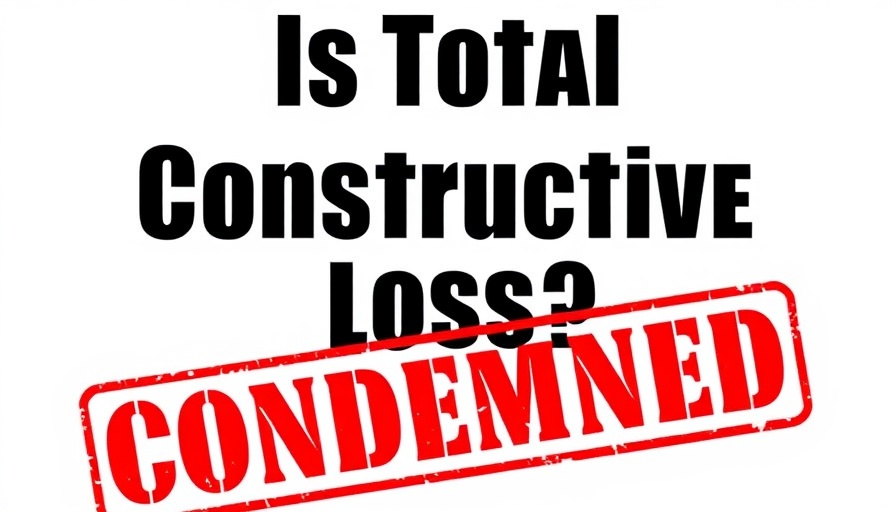
Understanding Constructive Total Loss in South Carolina
For South Carolina residents navigating property damage claims, understanding the concept of constructive total loss is essential. This can arise when a property is so severely damaged that legal directives require its demolition, influencing the insurance claim process significantly.
What Constitutes a Constructive Total Loss?
A constructive total loss occurs when a property is deemed beyond repair due to damage from a covered peril, leading to a situation where local laws mandate demolition. This concept is not just theoretical; it has crucial implications for those making claims. When such a loss is recognized, the insured party is entitled to recover the full amount of their insurance policy. Courts, such as the Wisconsin Supreme Court in the case of Gambrell v. Campbellsport Mutual Insurance Company, have upheld this right, underscoring that legal condemnation transforms damaged properties into total losses, regardless of the specifics of insurance contracts.
Historical Context: The Gambrell Case
The Gambrell case is pivotal in understanding constructive total losses, establishing that when local authorities declare a structure unsafe for habitation or repair, this creates an indisputable total loss. The Wisconsin court ruled in favor of policyholders, relying on state laws designed to protect consumers from unfair practices by insurance companies. This historical precedent serves as a benchmark for future cases across different states, including South Carolina.
The Role of Local Ordinances
In South Carolina, local ordinances can extensively dictate what happens after property damage. Residents must be aware that if local laws prevent repairs due to the extent of the damage, they may have a legitimate claim for a total loss under their policy. Therefore, knowing how local regulations interact with insurance policies is vital.
Common Insurance Tactics to Watch For
Insurance companies often employ tactics to minimize payouts, such as insisting on repairs that local laws prevent or denying claims altogether. It's crucial for policyholders to be on guard against these practices. Many adjusters may use 'tricks' to limit liabilities, including underestimating damages or promoting the notion that properties can be repaired when local laws mandate otherwise.
Fighting Back Against Denials
If your property has suffered extensive damage and you face a claim denial, don’t give up. Facing an unjust insurance claim denial can be frustrating and infuriating. Understanding your rights and how the legal doctrines supporting constructive total losses apply can give you the leverage needed to challenge the decision. Documenting every interaction with your insurance company and maintaining records of the damage is imperative.
Steps to Take Following Property Damage
If you encounter a scenario where demolition is mandated, it’s crucial to take swift actions to protect your rights:
- Consult a Professional: Seek advice from an attorney who specializes in property insurance claims to understand your rights and the potential for recovering full policy limits.
- Document Everything: Keep detailed records of the damage, communications with contractors, and any correspondence with your insurance company, as this will bolster your case.
- Be Aware of Local Laws: Research local ordinances that may affect your property and insurance claims, avoiding pitfalls that could limit your recovery.
Take Action Now
Understanding your rights in the aftermath of property damage is essential. With the landscape of insurance claims being fraught with potential pitfalls, it's vital to arm yourself with knowledge. If you are facing challenges in your insurance claim, consider your options carefully and remember that many resources are available to guide you through the process.
 Add Row
Add Row  Add
Add 




Write A Comment